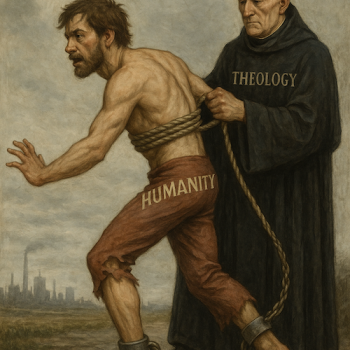 In my last installment, I explained why I am no longer a bible/scripture literalist. In this post, I want to take on one of the most common — albeit ridiculous — positions:
In my last installment, I explained why I am no longer a bible/scripture literalist. In this post, I want to take on one of the most common — albeit ridiculous — positions:
“The Bible Clearly Says…”
So many times, especially in the realm of social media, this variation of the logical fallacy of “appeal to authority” is trotted out in an attempt to silence or discredit a plethora of opinions and positions. The bible is also a go-to to support “confirmation bias,” which is the offspring of “cognitive dissonance.”
The truth is, the bible doesn’t clearly say anything. The bible is not a single, authoritative tome; it is a collection of loosely federated, subjective, and culturally biased books and letters. Adding to the confusion is that when these books and letters were canonized into a single volume, the biases and opinions of the editors were introduced.
Then there’s the issue of scholarship derived from or based upon the bible. There are entire institutions of higher learning dedicated to specific interpretations of the bible. Moreover, it is very common to find only highly-degreed graduates of these institutions leading local bodies (“churches”) of their denominational bent.
I am no longer one to cite scripture to support my theses so I will paraphrase in this case.
When Jesus said, “And I, and if I be lifted up from the earth, will draw all men unto me,” what was he talking about?
One camp will say that if we persistently preach and praise (lift up) Jesus, that will draw all men unto him (to be proselytized and converted and, therefore, “saved”).
Another camp will say that Jesus, in context, was speaking of the judgment of the world, therefore, he couldn’t have been speaking of people. Indeed, that word, “men” is italicized because it was added by the translators for readability. This camp concludes that the judgment of the world was absorbed by Jesus.
Still another will say that if his “lifting up” pertained to his crucifixion, then all men have been drawn unto him — this is an essential point for those who subscribe to universal salvation.
I will neither draw a conclusion nor give my opinion on this passage of scripture; I merely cite it to prove a point. There are 31,102 verses in the King James bible. So, if we assume just 3 interpretations for any given passage of scripture, that means we have at least 93.306 potential ndividual interpretations. Now imagine the combinations and permutations when you begin to “exegete” scripture!
There are groups that believe that baptism is essential to salvation and there are those who see it as non-essential. There are those who believe humanity still remains under part of the law and others who believe we are under grace. All told, this variation of interpretation has resulted in over 40,000 christian denominations.
And even these do not completely agree internally! So much for the “five-fold” (more on that in another installment) bringing about unity.
I’m also tickled by people who question your “exegesis” or accuse you of “eisegesis.” At the end of the day, because all scripture is viewed through the cultural, chronological, or cognitive lens of the reader. Which reduces the chance of objectivity to near zero.
Here’s the problem, most people do not study for themselves. Humanity, loving the path of least resistance, prefers to be spoon-fed. Critical and analytical thinking, on one hand, seems to be reserved for academicians; on the other hand, some purported scholars eschew thought in favor of whatever they’ve been taught to hang their doctrinal hats upon.
When folks cite scripture to prove a point, a modicum of intellectual honesty would cite this as their own personal opinion, not an empirical truth. I think the vast majority simply resorts to rote regurgitation of what they’ve been taught, reducing themselves to spiritual parrots.
Bottom line — there is no such thing as doctrinal purity or flawless hermeneutics; it’s all situational. And true exegesis is a myth; it’s all eisegesis. You shouldn’t need a ThD to interpret what God has to say to humanity. I don’t believe God will hold us accountable to the contents of book that few can agree upon.
And I’m glad about it.
















